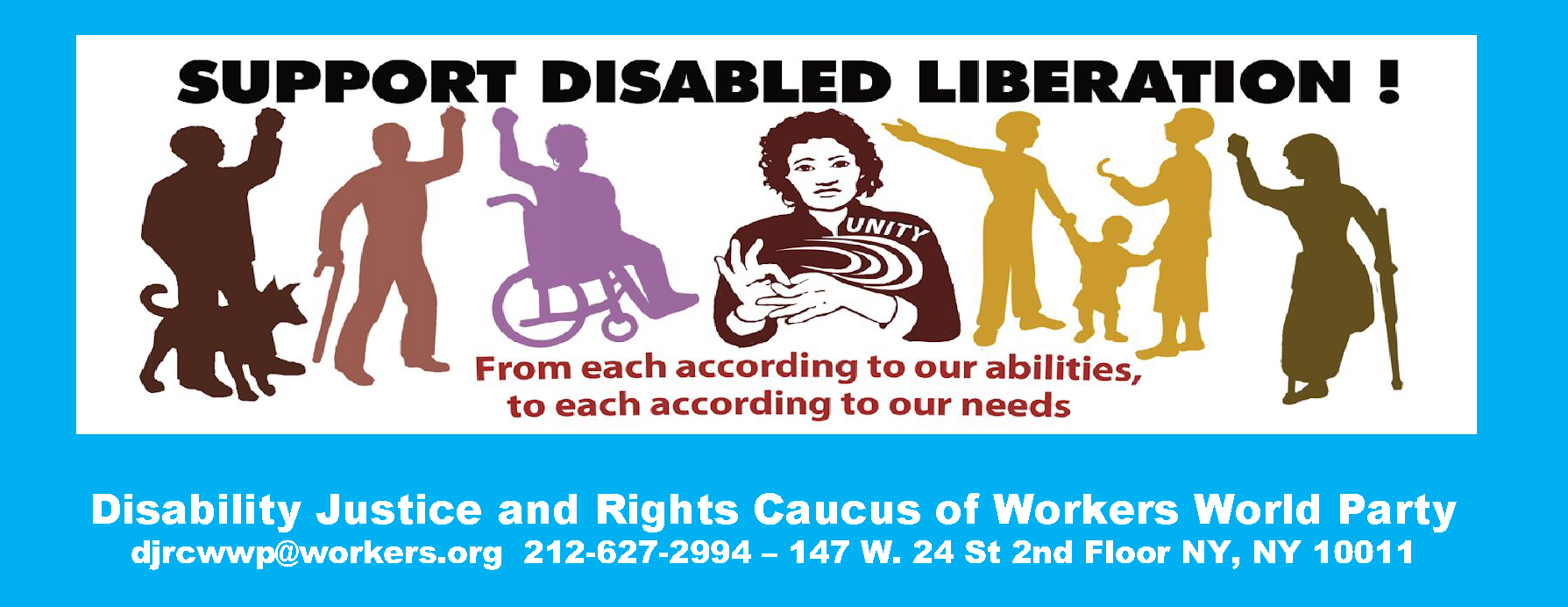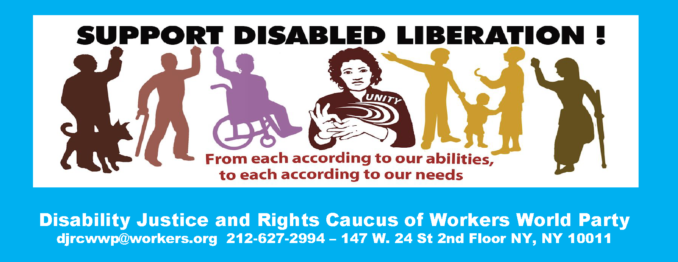



The Disability Justice and Rights Caucus of Workers World Party holds a Second Sunday Dialogue by zoom every month. On July 11, at the sixth of these dynamic sessions, DJRC speakers discussed important struggles to get access and fair wages for disabled people.
DJRC activist Renée Imperato related how New York City’s outdoor dining expansion during the COVID-19 pandemic invoked many social contradictions. The reckless rush to open up the economy, in hope of saving the collapsing restaurant industry, tore to pieces sidewalk- and street-accessibility rights guaranteed by the Americans with Disabilities Act (ADA).
The expanded sidewalk outdoor-dining structures built by private enterprise use public space rent free — taking up sidewalks maintained by the taxes workers pay — while the outdoor dining can close off street access and severely limit mobility. Imperato reported watching meetings where the NYC City Planning Commission celebrated “how wonderful street life is now,” oblivious to the struggles with mobility of people with disabilities.
Coupled with the sidewalk issues, delivery bicycles — some with motorized pedal assists — power scooters and small motorcycles have injured and even killed disabled folks and seniors in the city. Lisa Banes, a 65-year-old actor, died this way on a Manhattan street in June.
The caucus decided to submit a protest statement to the NYC Mayor’s Office for People with Disabilities and to picket some businesses whose outdoor dining structures obstruct safe access for both disabled and able-bodied pedestrians.
Disabled workers demand wage equity and benefits
The caucus will be checking on the progress of legal battles led by the National Federation of the Blind to win minimum wage equity for disabled people. Loopholes in the federal Fair Labor Standards Act allow businesses to pay people with disabilities less than the hourly minimum wage.
Second Sunday participants recalled an effective 2014 lunchtime protest by Workers World Party members and friends at a Goodwill store in Long Island City, Queens, near the conference hall where the WWP National Conference was being held. Goodwill is notorious for paying disabled workers less than the minimum wage. One DJRC activist recounted experiences from co-workers of their mother. Another caucus member identified Goodwill’s horrible record of sexual harassment and racist management conduct, workplace safety violations and deaths.
Finally, Princess Harmony reported the closing of the only U.S. city-funded recreation center for people with disabilities — the Carousel House in West Fairmount Park in Philadelphia.
Next up for the caucus is a July 29 webinar supporting the rights of incarcerated workers with disabilities and highlighting why the ADA has not been enough for any of us, no matter what our disabilities may be. For more information, the caucus can be reached at djrcwwp@workers.org.
Yudelovich is a DJRC caucus activist with neurodivergent and auditory disabilities.
This statement was recently issued by over 30 groups. On Friday, March 28, Dr. Helyeh…
When Donald Trump announced massive tariffs on foreign imports April 2, Wall Street investors saw…
The century-long struggle to abolish the death penalty in the U.S. has been making significant…
Download the PDF May Day appeal to the working class Revolutionary change is urgent! Gaza…
Philadelphia On March 26, the Pennsylvania Supreme Court denied political prisoner Mumia Abu-Jamal permission to…
There are two important and overlapping holidays on April 22: Earth Day and Vladimir Lenin’s…